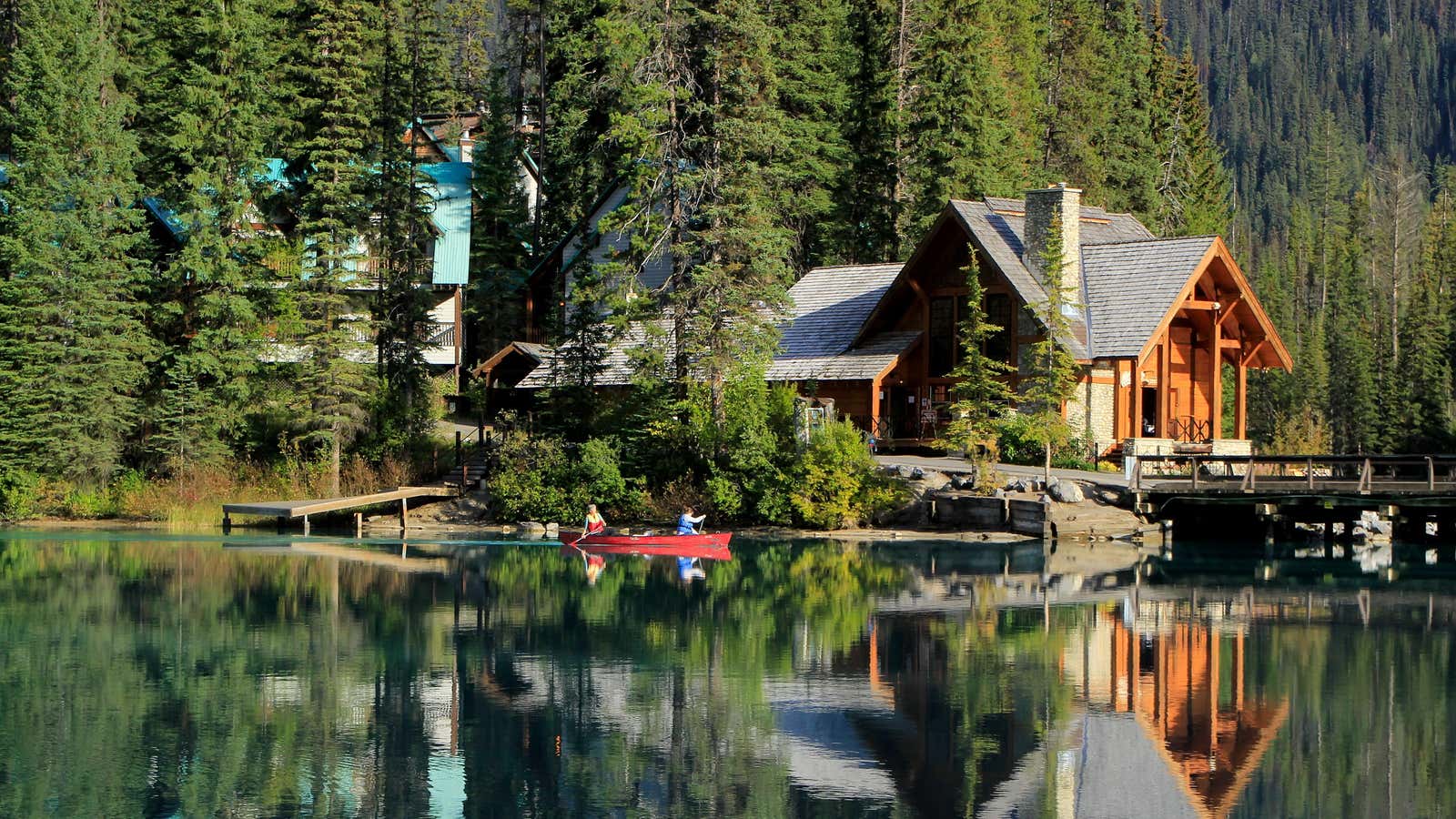Is It Worth Buying a Vacation Home Before a Starter Home?

In the midst of the pandemic, one of my friends — a self-proclaimed elderly millennial who wishes to remain anonymous — gathered his family of four in Brooklyn and went to seek refuge upstate. Buying a property was no small investment, but at a time when the cities were mostly closed, rural prices seemed like a good move.
A quick look at StreetEasy shows you’d be hard-pressed to buy a house for less than a million dollars in Park Slope, the area of Brooklyn where my friend lives permanently. However, various upstate listings can be double the size for less than a third of Brooklyn prices .
My analysis of the market is not very thorough, but then again, the fact that real estate is cheaper outside of large cities is nothing new. What’s more, the tendency to buy “vacation homes” before buying a regular “starter home” comes down to potential return on investment. Over the past few years, numerous headlines and blogs have reported the benefits of buying a “second” home over a first. But will this holiday home buying trend continue once the pandemic (hopefully) subsides? Here’s what you need to know.
Why vacation homes are the new starter homes
Due to the exorbitant cost of housing in major cities, many homebuyers have opted to continue renting their primary residence, effectively owning property in less competitive markets. Although experts noticed this trend before March 2020, as in many other cases, the pandemic has accelerated it.
According to Money.com, the average millennial buyer who took advantage of this trend in 2021 was able to spend $285,000 to buy a vacation home, well below the national average home price of $386,000. Aside from historic cost savings, this vacation home was full of other promises. Vacation home buyers can earn extra income by renting out their property, earn for themselves and have a place to escape in the event of COVID surges around their primary residence.
The chance to create capital in a market that seemed less accessible to them than any previous generation , combined with the opportunity for many to work remotely, made the decision to acquire a “second” home a potential once in a lifetime opportunity. purchase opportunity. But will this trend continue when the pandemic subsides?
Return to seller’s market
During the pandemic, buying a vacation home seemed like a win-win for millennials: low costs, an escape from the pandemic, and the first chance in their lives to become homeowners. Unfortunately, the pandemic-driven housing market is no longer as lucrative as it used to be. And, according to CNBC , we can expect strong prices in the seller’s market to continue into 2022.
What’s more, NPR this week paints the other side of the homeowner’s story: buyer’s remorse. The article notes that many new buyers have been caught off guard by all the unexpected costs associated with owning a home.
Consider the hidden costs associated with owning a home
In addition to down payments (such as your down payment) and monthly mortgage payments (which you can calculate with an online calculator like this one), there are some other expenses to consider.
- Property tax. They can vary greatly depending on your location . You can pay $5,000 in property taxes on a $250,000 home in New Jersey, or the same amount in taxes on a $750,000 home in Alabama.
- Homeowners insurance. Market Watch reports that the average cost of homeowner insurance in 2020 was $1,249 per year, or $104.08 per month.
- Utilities and maintenance. If you were only a tenant before, your landlord usually took care of the maintenance costs. American Family Insurance suggests using the square foot rule to estimate often unpredictable maintenance costs. The budget is about 1 dollar per square meter of living space. So a 2,500-square-foot home would require a budget of $2,500 per year, or about $209 per month.
For more information, here is our more detailed list of hidden costs for homeowners .
Takeaway
Getting a mortgage in a major city is a major hurdle for millennials, making owning a traditional starter home impossible. Vacation homes in more accessible areas will be more manageable month after month , with the potential for a profitable return on your investment. Unfortunately, the housing market in the midst of a pandemic no longer presents the perfect storm for millennial buyers that it once did. A “second” home may still be the right move for your first purchase, but the unique opportunity for buyers created by the pandemic appears to be over.